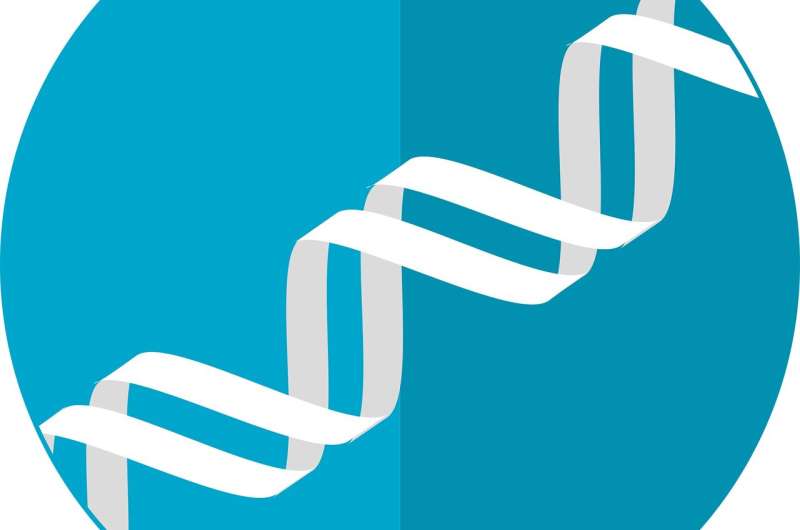Credit: CC0 Public Domain
Genetic variability across patients might play an important role in shaping the microbiome composition of wounds, thereby influencing the healing process, according to a study published June 18 in the open-access journal PLOS Pathogens by Caleb Phillips of Texas Tech University, and colleagues. As noted by the authors, knowledge about genomic sites associated with microbiome diversity in chronic wounds could guide the identification of predictive biomarkers and potential therapeutic targets.
Chronic wounds, which fail to show signs of healing within three weeks, are a costly burden to patients. Bacterial infection of wounds plays an important role in stalling the healing process. A variety of bacterial species are present in chronic wounds, but it is unknown why certain species are observed in some wound infections and not others. To address this question, Phillips and colleagues conducted a genome-wide association study to identify genomic loci associated with microbiome diversity in chronic wounds. According to the authors, this study is the first to identify genetic determinants of wound microbiomes and healing in patients.
Specifically, the researchers found that genetic variation in the TLN2 and ZNF521 genes was associated with both the number of bacteria observed in wounds and the abundance of common pathogens (primarily Pseudomonas aeruginosa and Staphylococcus epidermidis). Moreover, Pseudomonas-infected wounds had fewer species, and wounds with fewer species were slower to heal. The researchers also used biomarkers to predict the number of species observed during infection. Overall, the results suggest that genetic variation influences the types of bacteria that infect wounds as well as the healing process. According to the authors, biomarkers for chronic wound microbiomes could be used to guide treatment by providing information about which patients are at risk of developing certain types of persistent infections. Given that wound persistence is associated with the development of multiple drug-resistant pathogens, such biomarkers could be used to identify which patients should receive early and aggressive targeted therapy.
The authors add, "This study demonstrates the ability to find variants in people's genomes that explain differences in the microorganisms that infect their wounds. Such information is expected to guide new understanding about the mechanisms of infection and healing, and the establishment of predictive biomarkers that improve patient care."
More information: Tipton CD, Wolcott RD, Sanford NE, Miller C, Pathak G, Silzer TK, et al. (2020) Patient genetics is linked to chronic wound microbiome composition and healing. PLoS Pathog 16(6): e1008511. doi.org/10.1371/journal.ppat.1008511
Journal information: PLoS Pathogens
Provided by Public Library of Science





















